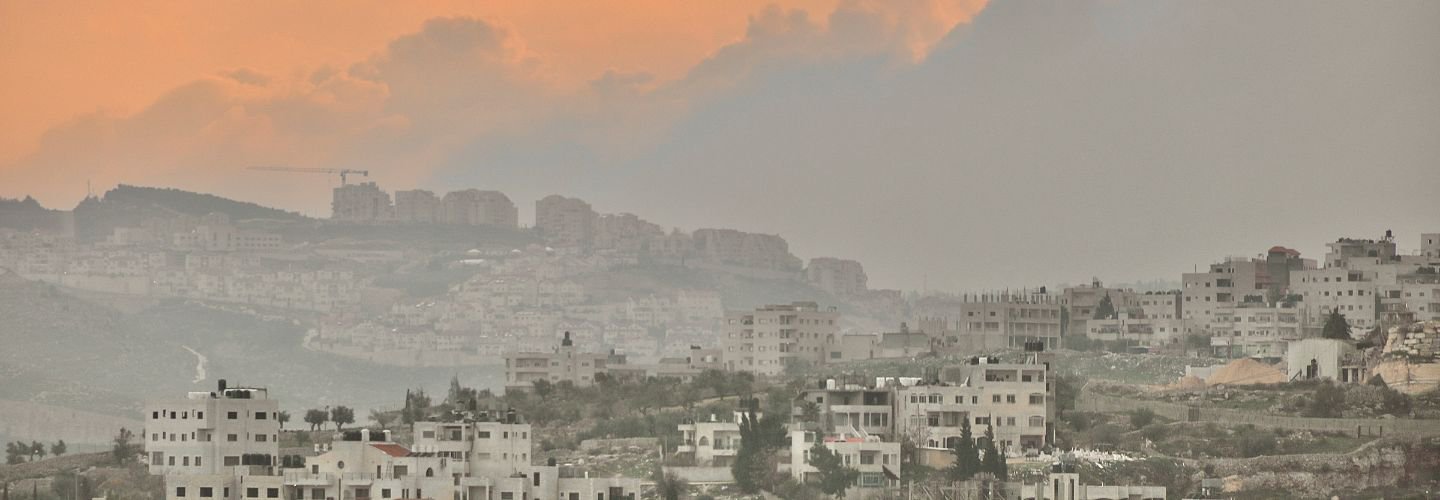
PALESTINE • STARTUP ECOSYSTEM
Seedstars Global
November 12, 2025
Founders in the West Bank and Gaza build in fragments. Power cuts, travel limits, and blocked payments are part of the job. Out of that reality, a distinct tech scene has taken shape that works lean, tests quickly, and looks outward for growth.
This ecosystem has been developing for more than a decade through universities, hubs, donor-backed programs, and a small pool of early funds. Much of the activity clusters around Ramallah and Nablus, with a long-standing community in Gaza that learned remote delivery early. Gaza’s freelancing base and training pipelines fed talent to firms serving clients in the Gulf and Europe, while Ramallah became the registration and corporate hub for many startups and service companies.
According to the World Bank’s Tech Startup Ecosystem in West Bank & Gaza report (2023), the ICT sector contributes roughly 4% of GDP, employing more than 8,500 people and producing around 2,500 new IT graduates each year.
The same report and ecosystem mapping identify over 70 active enablers: accelerators, coworking spaces, incubators, and funds that are shaping the startup landscape. The physical barriers that once limited collaboration have, paradoxically, helped create one of MENA’s strongest remote-first workforces.
One standout is Gaza Sky Geeks, launched by Mercy Corps in 2011, which has trained more than 15,000 digital workers with over 50% of them women and supported hundreds of startups across Gaza, the West Bank, and East Jerusalem. In 2022 alone, the program’s graduates generated over $20 million in online income.
Founders in Palestine tend to operate within three overlapping domains: software outsourcing, SaaS, and impact-driven innovation. These choices are pragmatic: software travels more easily than people or goods, and impact-oriented funding remains one of the few accessible capital sources.
Local funds such as Ibtikar Fund and Sadara Ventures have filled early-stage gaps, offering seed and pre-Series A funding when most capital arrived through grants. Their efforts helped build an investable pipeline that now supports startups operating across the Middle East.
With a small, fragmented domestic market, Palestinian founders design for export from the start. The World Bank’s Digital Economy Diagnostic describes this as a “test local, scale regional” model: teams validate products with early users in Ramallah or Gaza, then expand to Jordan, Egypt, or the Gulf once they gain traction.
Outsourcing and SaaS startups have proven most resilient. A fintech API company in Ramallah, for example, runs its back-end engineering out of Gaza, while an edtech startup in Hebron trains teachers remotely across MENA. These teams compete on reliability, not just cost — and that reliability has become their advantage.
A turning point came when the European Bank for Reconstruction and Development (EBRD) deepened its role in the ecosystem. In 2024, the Bank invested $3 million in Ibtikar Fund II — a $25 million vehicle supporting up to 25 early-stage tech companies in Palestine and abroad. It marked the EBRD’s first-ever equity investment in a West Bank-based venture capital fund.
The investment aligns with the Bank’s Star Venture Programme, which provides high-potential startups with mentoring, investment readiness support, and investor access. The programme is active across Central Asia, MENA, and now the West Bank and Gaza, and helps founders professionalize operations and prepare for regional expansion.
This combination of capital and capability building is quietly shifting how Palestinian startups grow: from grant dependence toward sustainable, investor-ready businesses.
Rebuilding through technology
The war in Gaza has devastated much of the ecosystem’s physical infrastructure — coworking spaces, university labs, and startup offices have been destroyed. Yet the digital sector remains one of the few capable of restarting quickly.
Programs like Gaza Sky Geeks and the Palestine Information and Communications Technology Association (PITA) are now focused on keeping the talent pipeline alive. Initiatives include emergency remote work placements, mental health support, and upskilling displaced tech workers.
For its part, the EBRD has tied recovery efforts to inclusion and resilience, focusing on women’s entrepreneurship, youth employment, and SME digitalization under its Digital Economy Enabling Projects.
If Palestine’s startup ecosystem is to reach its next stage of growth, several fundamentals need to fall into place. Access to capital remains uneven, with most funding concentrated at the seed level. Building a stronger base of local limited partners and regional co-investors would help startups move past the early stages and stay funded through scale.
Equally critical is policy reform: simplifying company registration, banking, and intellectual property rules so that founders can keep their headquarters and IP in Palestine rather than incorporating abroad.
Finally, the quality of support programs matters as much as their number. Dozens of accelerators operate across the West Bank and Gaza, but their outcomes are uneven. Shifting incentives toward measurable results like revenue growth, exports, and follow-on funding would make the sector far more competitive.
Together, these reforms could turn the digital economy into one of Palestine’s most durable and globally connected growth engines.
Palestine’s tech scene isn’t built on optimism alone. It’s a network of founders who keep building through instability, connecting to regional markets while managing local disruption. Each export contract, each retained engineer, represents not just progress — but continuity.
From Gaza Sky Geeks to Ibtikar Fund II and the EBRD’s Star Venture Programme, the message is consistent: when other sectors stall, tech keeps moving. In Palestine, innovation isn’t just about growth — it’s a way to keep the economy alive.